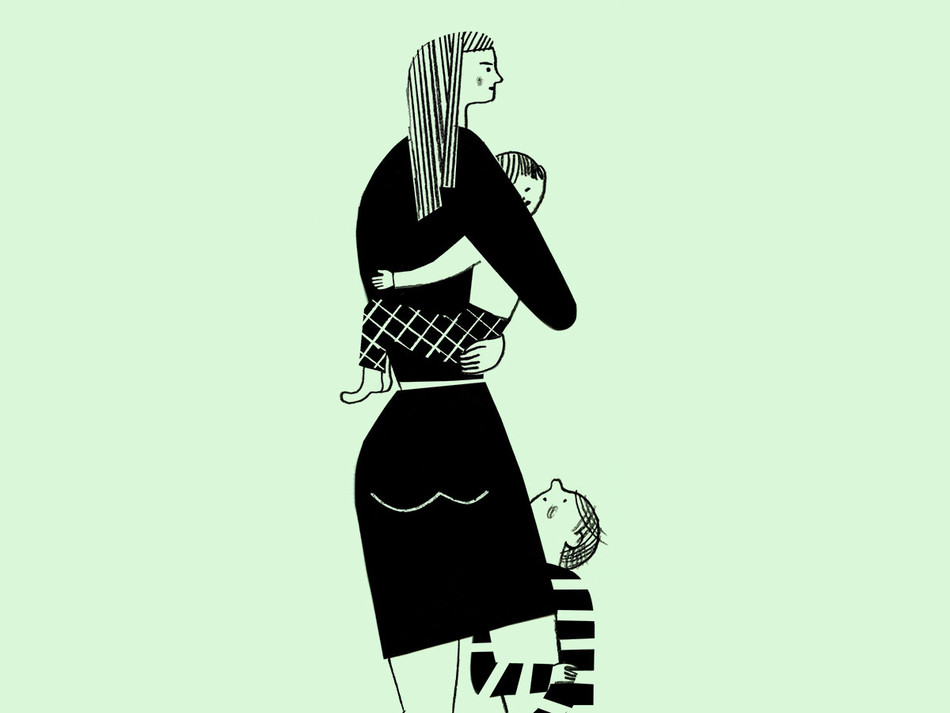It’s no secret that motherhood is costly because women, whether by choice or necessity, often drop out of the workforce to raise their children. In fact, the financial hit that mothers take in these years is the main reason for the overall US gender pay gap.
But new Columbia research reveals that the so-called “motherhood penalty” is more severe than experts had previously recognized. The study, by Columbia economist Douglas Almond and graduate student Yi Cheng ’20GSAS, along with Cecilia Machado ’10GSAS of Fundação Getulio Vargas’s Brazilian School of Economics and Finance, is the most statistically powerful of its kind, drawing on two decades’ worth of earnings and employment data for hundreds of thousands of families. The researchers show that working women see their incomes cut in half, on average, after having children, and that their earnings remain depressed for years thereafter.
“We tracked parents’ pay for six years following the birth of a first child and found that a mother’s income, after initially plummeting, typically does not recover during that period,” says Almond, who is a professor at the School of International and Public Affairs.
Past research has shown that mothers lose earnings largely because they work less, either dropping out of the labor force or reducing their hours, but the Columbia researchers reveal some additional insights. They show that even women who, before giving birth, were the primary breadwinners in their families tend to pause their careers and endure huge income losses afterward. According to Almond, this undercuts a theory that many economists have used to try to explain the motherhood penalty in the past, which posits that couples strategically decide to have the lower-earning partner — historically the mother — shoulder the burden of child-rearing. “The data suggest that many dads who ought to be stepping up and taking charge of the childcare, for the economic well-being of their families, aren’t doing so,” he says.
Jane Waldfogel, a Columbia professor of social work and public affairs who conducted seminal research on the financial ramifications of motherhood in the 1990s, says that the new paper underscores the need for stronger policies to support mothers who wish to remain in the labor force as well as cultural changes so that heterosexual parenting is seen as a joint venture between men and women. “The US is an outlier among wealthy nations in not legally mandating paid parental leave, which is certainly needed,” says Waldfogel. Her own research has shown that many women, if given the opportunity to stay at home with their baby for six to twelve months and then return to their jobs, choose to take it, thus maintaining their careers and avoiding significant wage loss. And men who get paternity leave tend to become more actively involved in parenting, which benefits kids and makes it easier for women to work. Another priority, Waldfogel says, should be to provide universal access to high-quality, publicly subsidized childcare. “Then you’d have a situation where both women and men are able to contribute their full talents to society and the economy.”
This article appears in the Winter 2023-24 print edition of Columbia Magazine with the title "The true price of motherhood."



